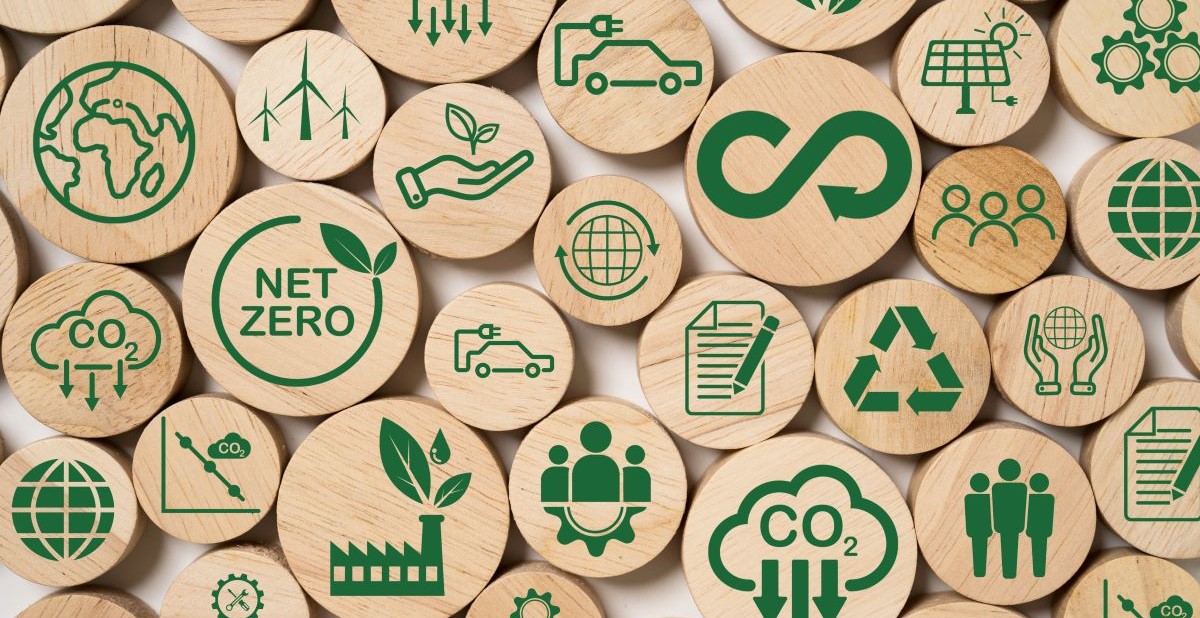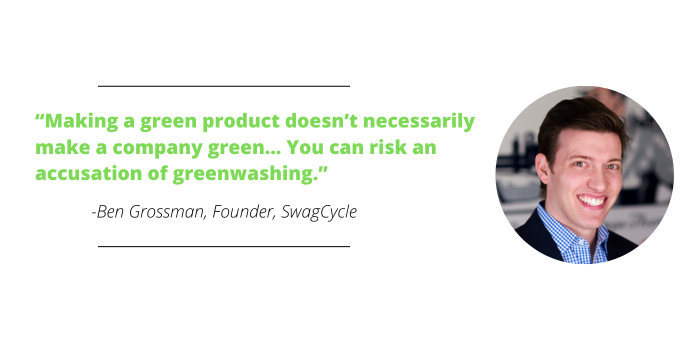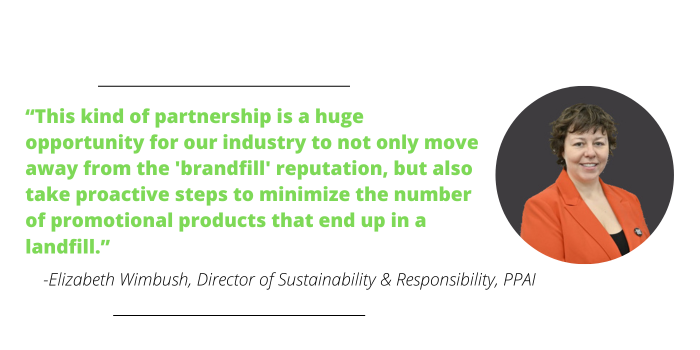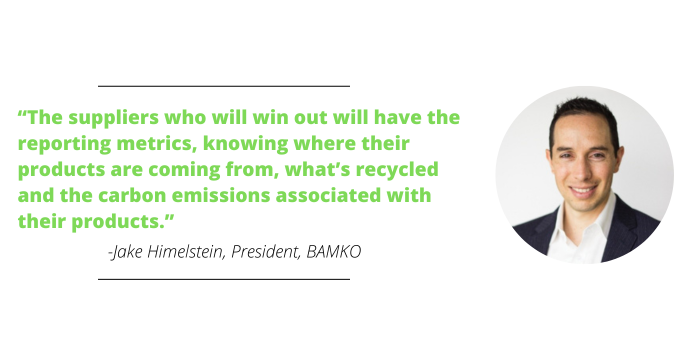‘Education And Collaboration:’ Promo’s Path Toward A More Sustainable Future

How can the promotional products industry pivot towards a more sustainable future?
BAMKO (PPAI 242148, D11) – promo’s fourth leading distributor in the PPAI 100 – partnered with SwagCycle on Wednesday to answer that question in a webinar titled “Sustainable Swag: Navigating the Lifecycle of Branded Merchandise.”
- Launched in 2019, SwagCycle helps companies repurpose, recycle and donate their obsolete branded merchandise in a sustainable way.
Ben Grossman, founder of Sommerville, Massachusetts-based SwagCycle and co-president of Grossman Marketing Group (PPAI 281988, D3), reasoned that because there’s such a wide array of green terms, certifications and processes to learn, getting involved with sustainability can be daunting.
“That’s why education and collaboration with our supplier partners is critical,” Grossman says. “It’s also crucial that when companies choose green products, it’s part of a larger sustainability commitment. Making a green product doesn’t necessarily make a company green. For example, an oil company that powers its office with renewable energy shouldn’t necessarily market itself as eco-friendly simply because it made one part of its operations sustainable. You can risk an accusation of greenwashing.”

When it comes to educating the promo industry on corporate social responsibility, Jake Himelstein, president of BAMKO, wants the Los Angeles-based firm to assume a leadership role.
“In our industry, the natural progression of any item is a landfill,” Himelstein says. “How do we change that narrative? Through a program we’ve done with Walmart where we recycled plastic water bottles to produce fully recycled polyester vests, saving 10 million water bottles a year. Things like that can have an immense impact if you multiply it across all the clients that we collectively serve.”
Benefitting The Industry
SwagCycle supports several distributors, either by operating in the background or joining the conversation with their clients.
“Some companies come to us and can’t donate products due to brand guidelines or compliance reasons,” Grossman says. “So, the goal is to find ways to keep these items out of landfills through recycling and upcycling initiatives.”
- Not surprisingly, apparel – the largest product category in promo – is the most requested item his company deals with.
- Apparel often gets shredded and turned into products like industrial wiping cloths, carpet pad fill, insulation materials and even boxing bag fill, Grossman says.
If someone wants to recycle apparel rather than donate it to Goodwill or charity, Grossman recommends checking out state-run programs and HELPSY, a national organization that has apparel collection bins and even makes curbside pickups.
SwagCycle also has systems in place to provide transparency and certificates of recycling to make sure these sustainable efforts can be tracked and measured, which will be an important component for a lot of end users, according to Elizabeth Wimbush, director of sustainability and responsibility at PPAI.

“This kind of partnership is a huge opportunity for our industry to not only move away from the 'brandfill' reputation, but also take proactive steps to minimize the number of promotional products that end up in a landfill,” says Wimbush, who attended the webinar.
“Traditionally, we haven't had much control over where the merch we make ends up. But this helps fill a gap, not only in education, but also in empowering us to lead our clients towards a sustainable future.”
Promo’s Sustainable Future
Grossman predicted that the promo industry will also move toward more circularity, as Patagonia has done. “Things won’t just be made, used and then thrown away,” he says. “Instead, perhaps things can be made, used, possibly repaired, repurposed or upcycled in a way that’s good for the environment, as well as a company and its marketing initiatives.”
The importance of designing goods to be reused in their existing form or recycled into new products plays a big role in how we embrace circularity in promo, Wimbush says. “I'm excited to see this kind of forward-thinking take off, as we collectively educate our clients and ultimately end-users that this is not only an option, but something that will become mainstream,” she adds.
In addition to circularity, Grossman predicts more companies will turn to auditable third-party certification, like from the B Corporation.
“Consumers don’t want to just know that a product is green, they want to know how and who says it’s green,” Grossman says. “Like in school, they want companies to show their work. Smart buyers are worried about being hit with a greenwashing claim, so the goal is to partner with forward-thinking companies who vet their supplier partners and think strategically about it.”

Himelstein agrees, stressing that it’s difficult for distributors to get certain data on promo products. As a result, he predicts more companies are going to tell manufacturers that they’re not able to work with them unless data and information are provided. After all, it’s not only important to distributors, but also their customers.
“We have a lot of clients with carbon zero goals by 2030, and we can’t properly report on that unless we get that data from our suppliers,” Himelstein says. “The suppliers who will win out will have the reporting metrics, knowing where their products are coming from, what’s recycled and the carbon emissions associated with their products. As an industry, we’re not quite there yet, but we’re heading in the right direction.”

